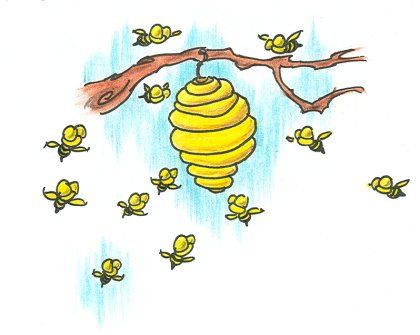 Remember the old controversy over whether or not a news publication should audit its online comments?
Remember the old controversy over whether or not a news publication should audit its online comments?About two years ago, the Washington Post ran into just that problem when it literally turned the function off after the usual stock of personal attacks and profanity showed up on its pages. Bloggers were furious, citing a violation of their own virtual First Amendment, and news hounds were appalled that the Post would stifle the voice of its readers.
At the time, washingtonpost.com executive editor Jim Brady wrote, "We're not giving up on the concept of having a healthy public dialogue with our readers, but this experience shows that we need to think more carefully about how we do it."
Two years later, the Sacramento Bee might have just figured it out.
A new policy at the Bee requires full names attached with online comments. Old-guard 'netphiles would argue that this ruins the anonymity of the Internet, but in the Bee's eyes, it introduces responsibility. After all, if you're going to take the time to say something, you should take responsibility for it, no?
As a result, the Bee is no longer vetting comments. In this case, that's great -- it rids of the need for such energy and time to do so and gets Bee staffers back on the important stuff: the news. Plus, any time a newspaper steps away from appearing like a God-like authoritative figure ("I am the decider"), that's a good thing.
However, the current worry is that staffers within places like government institutions won't have the freedom to comment without fear of repercussions.
But you know what I say to that? Baloney.
If a government staffer or any other insider has something important to say -- and doesn't want to just correct reader discussion for the sake of it -- he or she should simply e-mail the paper. Allow the paper to take anything important public, under the veil of anonymity. Isn't that what the paper's for?
If the Bee is worried that they won't get any more tips, they should introduce a special tip-off e-mail address that guarantees anonymity -- kind of like how The Consumerist treats its tipsters. If something's important, a well-written article would probably break more news than one comment among hundreds on a story.
So many news agencies are worried about how to handle the citizen masses. "But they'll curse!" they say. "But they'll be racist!" they say. Ah -- but when their name is attached, a digital trail may soon form, and they'll dig their own grave.
But I'm still stuck on this nuance: How exactly will the Bee ensure the use of a legitimate name? Or will this turn into a bunch of flamewars between "Billary Clinton" and "Hick Cheney"? I don't know.
But what I do know is that this action is not an overreaction nor infringing on freedom of speech. I applaud the Bee. If you want your freedom, stand up and claim it. Last time I checked, the Constitution doesn't guarantee you anonymity with it.


![Editorialiste [at] gmail](https://blogger.googleusercontent.com/img/b/R29vZ2xl/AVvXsEjzDvlHqUd5msfCmRq2Q5EZRpn_nbVg33bjiUhLEigM_5fudZhIHvuAVxB4_MS0xn-cQ0EKyjxOua1ysQ4NdMzyvhg1oSVTv6OJAarhVTqG0BBkJKTjqBhwMjrMGOANWxT8l8rKFg/s220/editorialiste_logo.jpg)
No comments:
Post a Comment